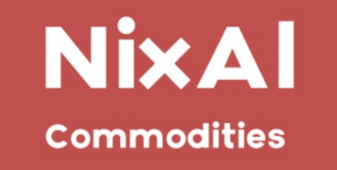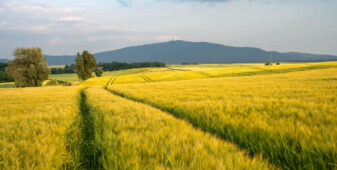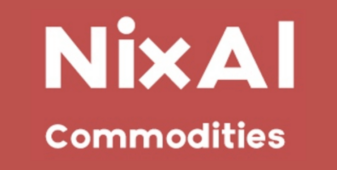Insight Focus
- International norms of the past no longer seem to apply.
- Wheat’s potential to be part of an attempt at political restructure.
- Two countries with the biggest potential influence over the global wheat market.
Introduction
The last few months have given the World’s wheat markets a glimmer of hope that a calming of prices, with a possible return to pre 2022 norms could be on the horizon.
Headlines have been looking increasingly at the more usual fundamentals of plantings, crop conditions, supply and demand with ongoing assessments for 2023/24.
However, disappointingly, in the last couple of weeks, wheat and global food security appears to be high on the agenda in the thoughts of a few, impacting the masses.
Market Moves



Source: Barchart Commodityview
The gradual decline of wheat markets, as seen in the charts above, has recently seen the brakes applied.
The USDA forecast lower stocks at the end of this marketing year in their monthly WASDE report, at 267.2 mmt, down from 269.34mmt in Feb ’23.
However, news coming out of Russia’s Kremlin over recent weeks raises the question of food security across the globe.
Russia
The last 15 months have time and again shown that Vladimir Putin, President of the Russian Federation, wishes to remind the world of his position of influence.
As Russia is the world’s largest exporter of wheat, at an estimated 43.5 mmt (Source USDA WASDE) there is no mistaking Russia’s place in the world of grain supply.
Russia’s invasion of Ukraine in February 2022 sent the wheat markets into a state of unprecedented volatility and turmoil.
In more current news other important issues have been reported with potentially significant implications for the wheat market.
Black Sea grain corridor agreement
Last month’s renewal of the agreement was an opportunity for a show of political strength by Putin. He did not waste the chance.
Russia agreed to an extension for only 60 days, rather than the previous 180. Citing issues impacting their own agricultural shipments of grains and fertilisers as a reason for reducing the longer-term stability for wheat markets.
A ban of Russian exports
On Friday 24 March a news story erupted from Russian Vedomosti business daily suggesting that Russia was considering a ban on wheat exports from the country.
Although swiftly dismissed by the Kremlin, they did clarify their desire for a base wheat price of $275/mt (FOB), only marginally lower than the recently traded $277/mt.
Suggesting that Russian exporters do not sell below that price could be interpreted as a Putin order that is not to be ignored.
China.
With China’s year end wheat stocks predicted to be 139.58mmt, or a huge 52% of the total world 267.20mmt (USDA WASDE), China’s position of influence in world food security should not be underestimated.
A visit to Moscow by China’s President Xi Jinping at the end of March has further fuelled speculation surrounding the true relationship between the two huge and influential countries.
Conclusions
The turmoil inflicted on wheat markets in 2022 was doubtless a secondary side effect of Putin’s invasion of Ukraine, intended to primarily exert his power and influence politically on a neighbour swaying westward.
Despite a failing military campaign, Putin needs to continue his show of power and strength.
Demonstrating his ability to disrupt the world’s food security, as recent news suggests, allows an alternative reminder of his global influence.
With a neighbour in China, who equally wishes to expand their power on the global stage to the detriment of the West, Putin has an ideal ally.
Assessing the prospects for China, with the largest wheat stocks, and Russia, the largest wheat exporter, to jointly raise food concerns in addition to the current military and political security of the world’s masses makes for sobering reflection.
There is no doubt that China and Russia have two presidents with significant leverage to hold over the world, if not economically, politically or militarily, most certainly in food security.







